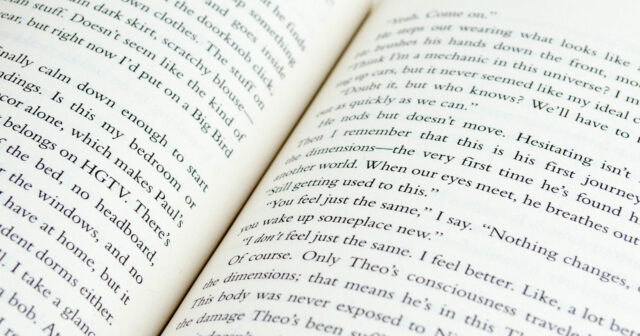editing
-

When to Use “I” and “Me” in a Sentence
When to Use “I” and “Me” in a Sentence
Published Nov 19, 2022
Last Updated Mar 10, 2025Is it “you and me” or “you and I”? This can be a complex question, even for native English speakers. The difference lies in whether you need to use a subject pronoun or an object pronoun. In this post, we’ll dig into what these pronouns are and how to establish when “I” or “me” is […]
-

Literally and Figuratively: What’s the Difference?
Literally and Figuratively: What’s the Difference?
Published Nov 16, 2022
Last Updated Nov 26, 2024The English language’s waters can be muddy. So too can the difference between this pair of words: literally and figuratively. Literally and figuratively aren’t the same thing, despite what some people may think. Literally used to denote a literal, or letter-by-letter, meaning. People didn’t start to use literally in a figurative sense until about 200 […]
-

When to Use Possessive Apostrophes
Published Nov 13, 2022
Last Updated Mar 04, 2024Apostrophes are one of the most commonly misused forms of punctuation. As a proofreader or editor, you’ll need to catch apostrophe errors in your client’s work. There are two main uses of apostrophes: to indicate possession and to create a contraction. In this post, we’ll be focusing on the former. Read on to learn the […]
-

Similes and Metaphors: What’s the Difference?
Published Nov 09, 2022
Last Updated Jun 04, 2024Have you ever wondered what the difference is between a simile and a metaphor and how to use them in writing? If you’re an editor, particularly of creative writing and fiction, it’s important to know the difference between these two literary devices so that you can advise your client on when to use them – […]
-

7 of the Best Podcasts About Language
Published Nov 07, 2022
Last Updated Nov 20, 2024Podcasts are more popular now than ever before, with a podcast on every topic from paranormal investigations to ancient history. They can be an inspiring educational or proofreading tool as well as a way to make learning more fun. You can even listen to a podcast while doing work and household chores, making them great […]
-

Whomever or Whoever: What’s the Difference?
Published Nov 06, 2022
Last Updated Mar 04, 2024If you’re confused about when to use whomever or whoever, you’re not alone. In today’s post, we’ll explain the difference between whomever and whoever and how you can determine which one to use. Who and Whom Whoever and whomever take their forms from who and whom, two words that belong to a time when many […]
-

How to Find Work with Self-Published Authors
Published Nov 04, 2022
Last Updated Apr 15, 2025Many authors are now choosing to self-publish so they can craft their work without having to consider the limitations of publishers. But authors who go this route still need a crucial element to bring their masterpiece to completion – a qualified editor. Working as an editor for self-published authors offers many advantages, such as being […]
-

What Is the Standard Manuscript Format?
Published Oct 28, 2022
Last Updated Sep 03, 2025Many publishers expect submissions to use a standard manuscript format. As a proofreader or an editor, knowing what the standard format requires will allow you to better help your clients. Read on to find out what the standard manuscript format is and when it should be used. What Is a Manuscript in Publishing? In publishing, […]
-

How to Use Semicolons (with Examples)
How to Use Semicolons (with Examples)
Published Oct 24, 2022
Last Updated Jul 28, 2025A semicolon (;) is a punctuation mark that indicates a pause, and it typically serves two purposes: linking two closely related independent clauses and separating items in a multipart list. But how are they different from colons? And when is a semicolon a better choice than a comma? As a proofreader, you’ll need to know […]
-

Narrative Structure: What Are the 7 Basic Plots?
Narrative Structure: What Are the 7 Basic Plots?
Published Oct 21, 2022
Last Updated Jan 29, 2025Often, the aim of narrative theory is to identify common plots that are used in many stories. One of the most well-known attempts in recent years is Christopher Booker’s 2004 book The Seven Basic Plots: Why We Tell Stories. In this book, Booker proposes that any story will follow one of seven different plots: Understanding […]
